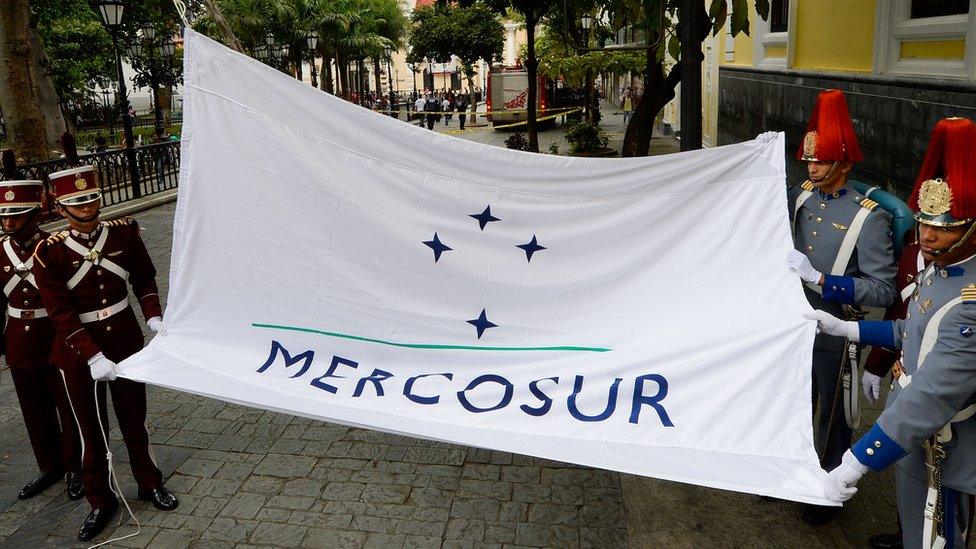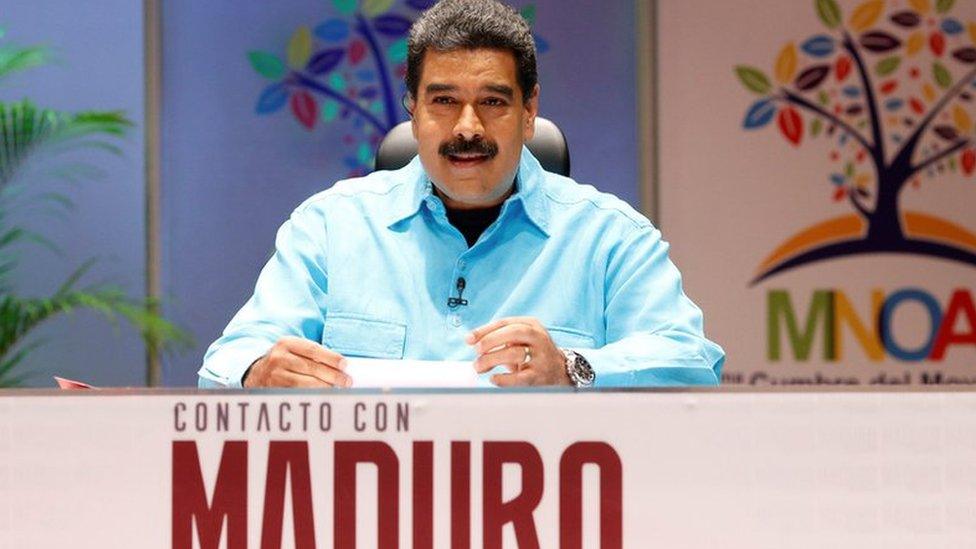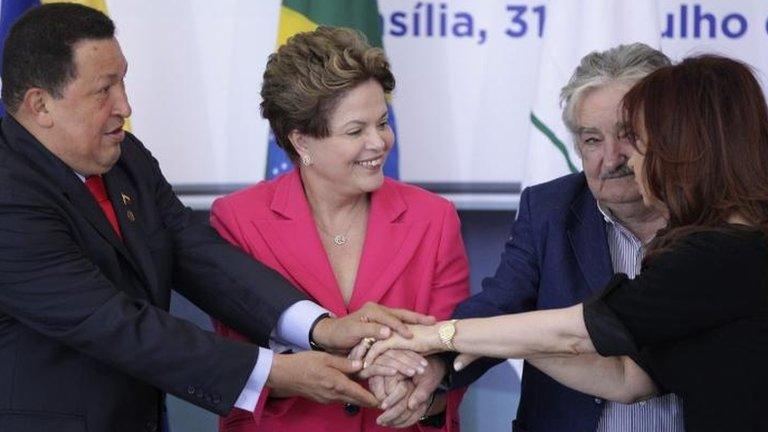Mercosur suspends Venezuela over trade and human rights
- Published

Venezuela was due to take over the Mercosur presidency in September
The South American economic bloc Mercosur has suspended Venezuela for failing to meet its basic standards.
The bloc's founding members - Brazil, Argentina, Paraguay and Uruguay - made the decision after concluding Venezuela had not incorporated key rules on trade and human rights into national law.
Venezuela, which joined the bloc in 2012, has argued that some accords conflict with its domestic legislation.
On Friday it said it rejected any decision to suspend it from the bloc.
"Venezuela does not recognise this null and void action sustained by the law of the jungle of some officials who are destroying Mercosur," Foreign Minister Delcy Rodriguez said on her Twitter account.
In September Mercosur gave the Venezuela until 1 December to fully put its charter into effect.
What is behind the crisis in Venezuela?
On Thursday, Brazilian officials were quoted as saying that the foreign ministers of the four founding countries had sent a letter to Venezuela saying its membership had been suspended.
"Venezuela has not adopted all the membership rules and treaties it had promised," one official told Reuters news agency.
Correspondents say Venezuela's neighbours have become increasingly concerned over developments in the country.
The opposition blames left-wing President Nicolas Maduro for widespread food shortages, looting, and human rights abuses. The government accuses the US and Venezuela's business elite of trying to destabilise it.
Since 2015, tensions between Venezuela and its Mercosur partners have been exacerbated by the replacement of left-wing presidents by centre-right leaders in Argentina and Brazil.
Earlier this year the bloc stopped Venezuela from assuming the rotating presidency.
- Published14 September 2016

- Published31 July 2012
